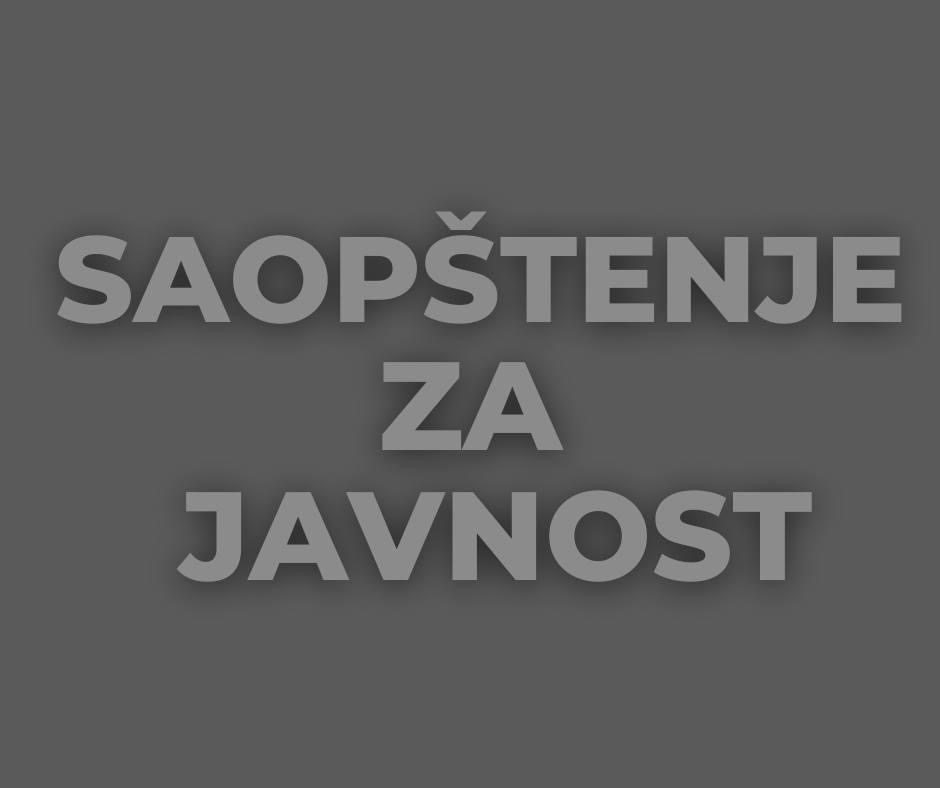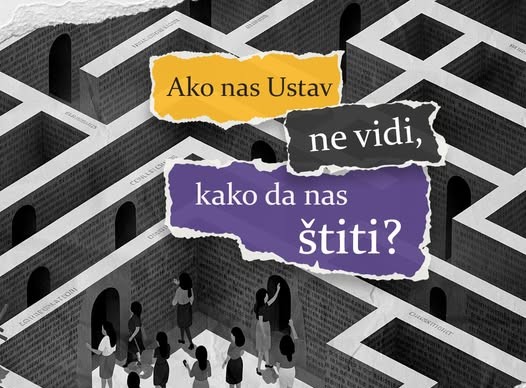The Draft Law on Protection against Domestic Violence and Violence against Women, which expanded the definition of violence against women and defined femicide as deprivation of life, was withdrawn from the procedure because the Ministry of Family, Youth and Sports of the Republic of Srpska gave up on it, without any explanation.
Obviously, the devastating black statistics were not enough for the Republic of Srpska authorities to see the need to pass this Law and to improve protection against domestic violence and violence against women. According to official data on the crime rate in Republic of Srpska, domestic violence is in first place, according to the reported number of cases. The average number of reports on a monthly basis for 2023 is 100, and the number of victims is significantly higher. Last year, ten women were killed in BiH, along with seven attempted murders. During the last two and a half years, almost 1,500 women and children have been taken care of in safe houses throughout BiH. The number of pronounced measures for the protection of victims is 10% of the total number of reports, and only 35% of cases are processed. Women and children are the predominant victims and that number is increasing year by year, and the methods of femicide are becoming more and more brutal and frequent.
If this Law had been passed, the procedure for imposing emergency protection measures would have been improved, it would have enabled women exposed to violence to be placed in a safe house at their own request and receive sensitized support in recovery. Also, it would enable women who are victims to be informed in a way they understand from institutions that are recognized as subjects of protection.
However, more than 20 right-wing, populist and clerical organizations that stand for traditional values, with the public support of the President and Prime Minister of Republic of Srpska and the political parties that have the majority in the Assembly of Republic of Srpska, demanded for months that this Law be withdrawn from the further procedure. Their reasoning is based on unfounded theses that the law threatens the traditional family, and introduces the so-called LGBTIQ+ and gender ideology into the legislation.
Does this mean that violence against women and children is an integral part of the traditional family? How do the authorities of Republic of Srpska justify withdrawing the Law from the procedure when there is an increasing number of women experience domestic violence and when more and more women are killed just because they are women.
Civil society organizations, and individuals, we request from the Ministry of Family, Youth and Sports of the Republic of Srpska a public explanation for the withdrawal of the Draft Law on Protection against Domestic Violence and Violence against Women.
Regardless of the fact that the possibility of improving the legislative framework has been postponed, in order to ensure the most adequate protection of women and children from violence, we appeal to all subjects of protection that are recognized as such in the current Law on Protection from Domestic Violence, to consistently and responsibly continue the application of the existing provisions.
Signatories of the announcement:
Organizations, initiatives and foundations:
- Foundation Lara, Bijeljina
- Sarajevo Open Center
- Foundation United Women
- Helsinki Citizens’ Assembly Banja Luka
- BASOC
- Project Genesis
- DON, Prijedor
- AC Heart in Hand
- eTrafika
- Worker’s Solidarity BiH
- Transparency International u BiH
- UNSA Geto
- KVART Prijedor
- Initiative Women Citizens for Constitutional Reform – 36 members and individuals from BiH
- Foundation CURE
- Human Rights House Banja Luka
- Network for Building Peace – 260 organizations from BiH
- Vive Women, Zenica
- NGO Association of Citizens Grahovo
- Initiative of Citizens Mostar
- Ured Trag Foundation in BiH
- Association “New Road”
- Associations RIGHT WAY
- Banjaluka Centre for Human Rights
- AC Sharp Zero
- Nera, Konjic
- Association Forma F, Mostar
- Hi Neighbour, Banja Luka
Following:
Individuals:
- Rubina Čengić, activist and journalist
- Bojana Mijić, activist
- Srđan Puhalo, psychologist and researcher
- Danijela Majstorović, activist, University in Banja Luka
- Murisa Marić, activist
- Besima Borić, activist and politician
- Đulija Aćimović, activist
- Jadranka Miličević, activist
- Azra Okić, politician
- Maida Zagorac, activist
- Esma Drkenda, activist
- Erduan Katana, activist and journalist
- Gordana Katana, activist and journalist
- Tamara Miščević, activist
- Nemanja Tubonjić, activist
- Milica Pralica, activist
- Jasna Bakšić-Muftić, University in Sarajevo
- Zlatiborka Popov Momčinović, University in East Sarajevo
- Amila Ždralović, University in Sarajevo
- Milkica Milojević, journalist and activist
- Tanja Boromisa, activist





